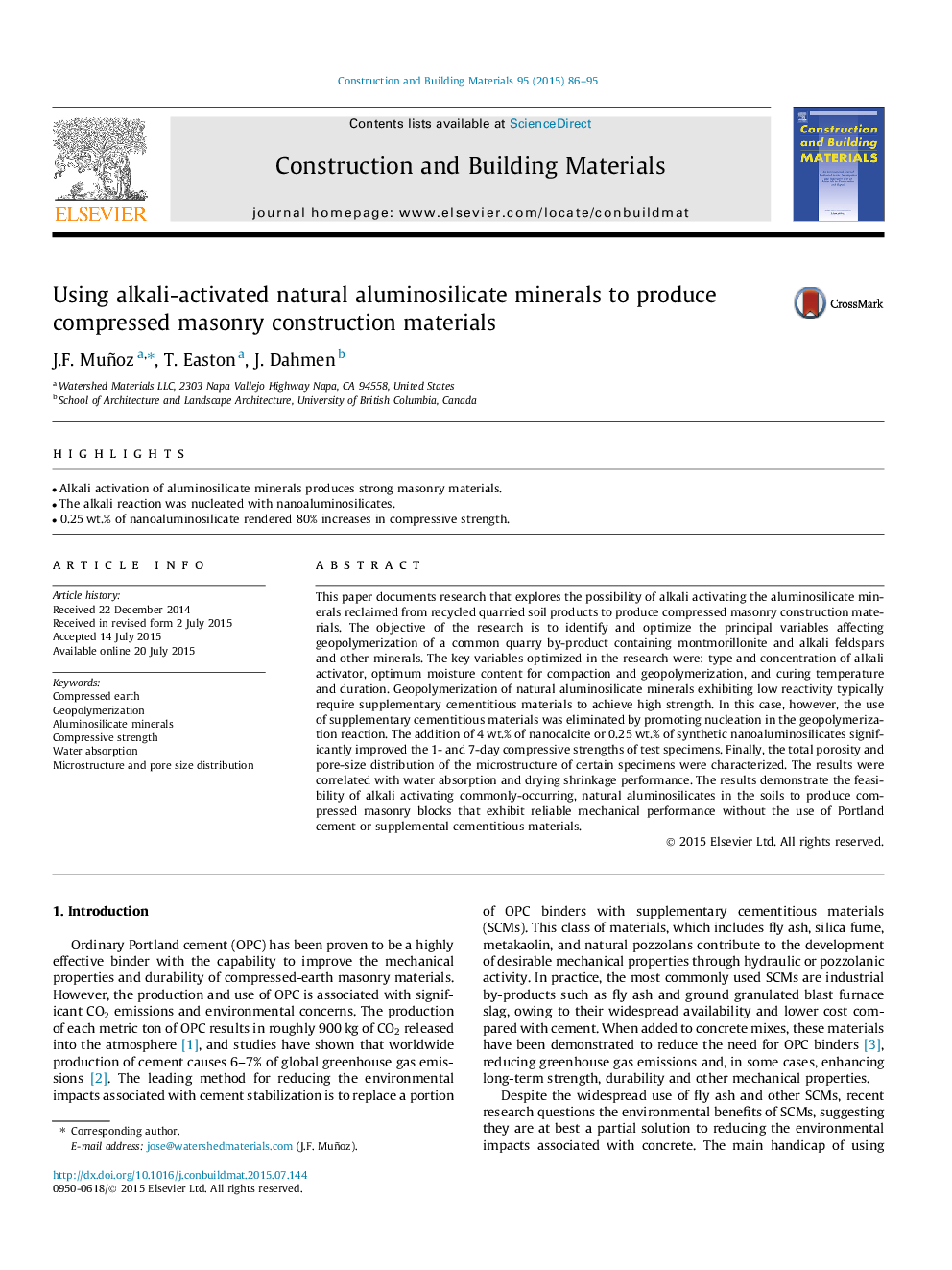| Article ID | Journal | Published Year | Pages | File Type |
|---|---|---|---|---|
| 256762 | Construction and Building Materials | 2015 | 10 Pages |
•Alkali activation of aluminosilicate minerals produces strong masonry materials.•The alkali reaction was nucleated with nanoaluminosilicates.•0.25 wt.% of nanoaluminosilicate rendered 80% increases in compressive strength.
This paper documents research that explores the possibility of alkali activating the aluminosilicate minerals reclaimed from recycled quarried soil products to produce compressed masonry construction materials. The objective of the research is to identify and optimize the principal variables affecting geopolymerization of a common quarry by-product containing montmorillonite and alkali feldspars and other minerals. The key variables optimized in the research were: type and concentration of alkali activator, optimum moisture content for compaction and geopolymerization, and curing temperature and duration. Geopolymerization of natural aluminosilicate minerals exhibiting low reactivity typically require supplementary cementitious materials to achieve high strength. In this case, however, the use of supplementary cementitious materials was eliminated by promoting nucleation in the geopolymerization reaction. The addition of 4 wt.% of nanocalcite or 0.25 wt.% of synthetic nanoaluminosilicates significantly improved the 1- and 7-day compressive strengths of test specimens. Finally, the total porosity and pore-size distribution of the microstructure of certain specimens were characterized. The results were correlated with water absorption and drying shrinkage performance. The results demonstrate the feasibility of alkali activating commonly-occurring, natural aluminosilicates in the soils to produce compressed masonry blocks that exhibit reliable mechanical performance without the use of Portland cement or supplemental cementitious materials.
